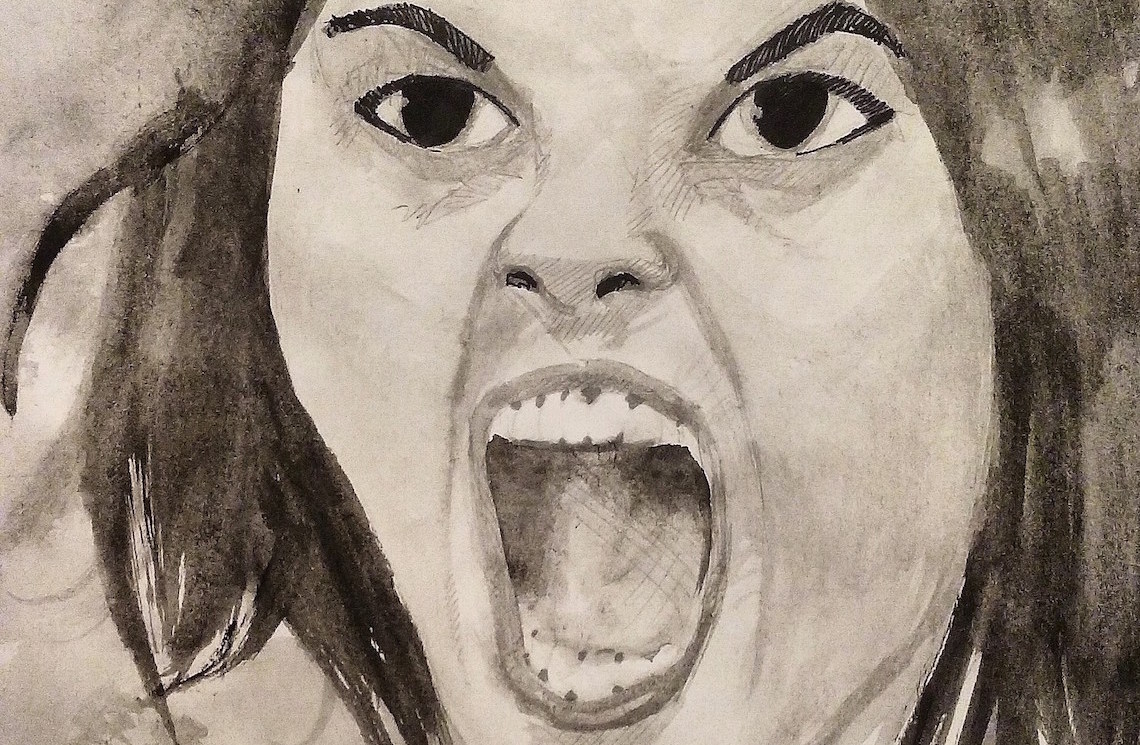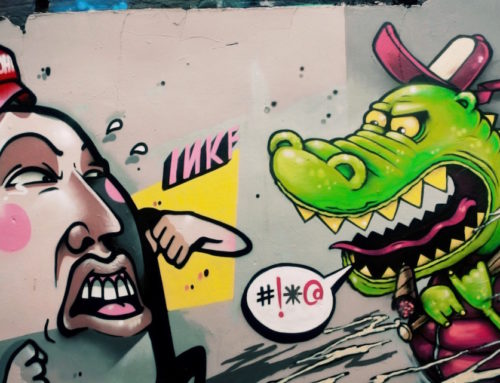As little as twenty years ago, young creatives everywhere sat having worked on something for hours on end, whether that be a painting, a film or a piece of music then staring at it with joy or rage, proud or utterly disgusted by what they had created. Perhaps they had intentions and dreams to share it with the world, or perhaps just to keep it to themselves.
As a great man once said, “We’re gonna sit at our desks and keep typing while the walls fall down around us because we’re creative. The least important, most important thing there is”

“The Earth without “art” is just “Eh””
No matter what happens, the world will always need art. And no matter what happens, creatives will always strive to create it and to express ourselves in ways that we can’t do in any other way. Art has been around almost as long as the world itself and is constantly evolving to reflect every new generation and every new society.
There were times when creatives would need to go through various stages in order to even get their work seen; in order to be an artist, or at least to feel like one, people had to send their work to the right people, seeking approval and publishing.
Everybody’s Public.
In today’s internet driven society, if you want to be an artist, you post your art online or sell it, and you’re an artist. You want to be a writer, get on Inkitt and publish something; you’re a writer. Nowadays everybody has a camera phone, and anybody can shoot a video and upload it to YouTube. Bam! You’re a filmmaker. At just the mere click of a button, your work can reach people in Paris, Rome, Tokyo or just about anywhere else in the world. With that exposure comes influence that we previously did not have at our disposal in a matter of seconds. We can share, discover and be inspired through different cultures and different styles, merging them into one to create something almost original. (It’s the 21st century; being original is one of a creative person’s many struggles.)
Everybody Has An Opinion.
Of course just as you can share your creations; somebody can criticize them just as fast. Everybody nowadays has an online presence, presenting our lives and our work and putting it out there to be viewed by the world, and of course everybody has an opinion and now everybody can share that opinion at the click of a button. An artist can get feedback in minutes from the general public and even from professionals. It allows us to interact with people and have conversations concerning our creations in a way that we simply could not in the past.
Not only has the rise of social media opened doors for budding creatives, it has also changed the way that professionals promote themselves. One industry in particular that has taken full advantage of this modern change: the movies. Just as ‘golden age’ Hollywood had magazines and newspapers, modern Hollywood has Facebook and Twitter.
Promotion has always been a huge part of the movie industry. Getting through to the public by word of mouth is and has always been a focus; now with everybody conversing through the internet, it is easy for industries to actively check how many people are engaging and talking about their movies or shows and where it is happening the most. It is allowing studios to get instant comments and know what people are responding to. The scrollers will stop if they like what they see on their screens rather than having to stop in their tracks in the underground or walking down the street to look at a billboard. Studios are able to create pages for their projects and people that click the ‘like’ or ‘follow’ button are able to be notified every time something is posted, following every new development. How many times in your life do you hear “Did you see that thing on Facebook?” Whether we want to admit it or not, social media has taken over our lives. Take the television drama Breaking Bad as an example. Breaking Bad is considered one of the greatest television dramas ever produced. During its original run, it was a view grabber like no other, at least in the United States. Here in the UK however, Breaking Bad got little exposure; airing on British television for only it’s first two seasons before getting removed. It wasn’t until the show was reaching its end that we started to catch on. Why? Social media. Audiences were buzzing about the show’s finale and the discussions were all over social media and therefore, all over the world. While some may argue that the internet through things like piracy and leaked footage is killing the movie industry, it has also extended to it an olive branch.
The Dreamers.
One area of filmmaking in particular that is at the forefront of this incredible new world of opportunities are the independent creators. Through social media, these dreamers are able to reach the same numbers as any Hollywood blockbuster. Filmmakers with limited resources, especially financially, have to count on audience reactions. Creators looking to produce low budget films can also use social media to cast and also to fund, through things like Kickstarter. Kickstarter is a pretty incredible platform as it allows audiences and fans to voluntarily put money into projects that they want to see. The success of a Kickstarter campaign relies on the public’s reaction to the product and is another way for creators to see what’s working and what may not be.
Even if one does not have a lot of social media followers, the infamous ‘share’ button has and will continue to help independent filmmakers to reach the audiences that they want to reach. Facebook has the option to promote your page or post for a small fee and the ability to choose which interests to target and even which countries to advertise to. Indie creators can essentially be their own movie production studios in an affordable way. Filmmaking is a collaborative process and as I previously mentioned, aspiring writers and directors can use social media to reach out to aspiring actors or musical composers, whether they be five minutes away or five hours away.
Social media connects the artist to the audience in a way that allows for engagement and allows for collaboration. If you want to get the word out, the internet is the place to do it.
Article and drawing by Alex Leptos. You can read more articles written by Alex on his Movie Pilot Page. If you are interested in his art please visit his Facebook Page.

